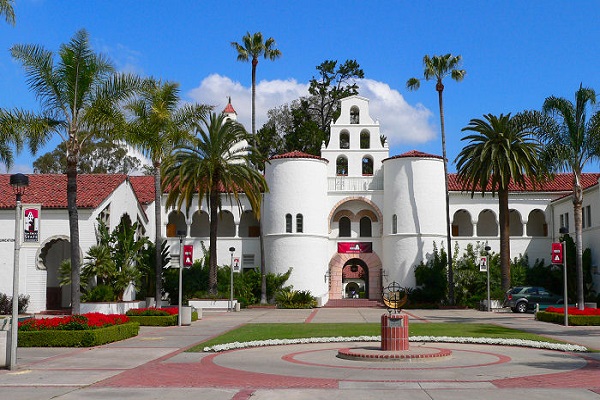San Diego State University: Leaders from SDSU, Mexico, Republic of Georgia Meet On Sustainable Development Goal-Setting
San Diego State University President Adela de la Torre met with officials from one of Mexico’s top-ranked universities and educational leaders from the Republic of Georgia to advance their commitment to transborder academic projects and their collaboration on plans for global sustainable development.
Held Sept. 5 at the Universidad Autónoma de Baja California (UABC) Ensenada Campus, the meeting included Georgia’s Minister of Education and Science Mikheil Chkhenkeli, SDSU Georgia Dean Halil Guven, presidents from three different Georgian universities, and representatives from SDSU and UABC.
“As part of our commitment to preparing global leaders, SDSU International Affairs has consistently aimed to strengthen bridges of collaboration that expand from San Diego to our Cali-Baja transborder region, and other strategic parts of the world,” said Cristina Alfaro, SDSU Associate Vice President of International Affairs.
The group’s agenda focused mainly on collaborative strategies that meet the U.N.’s Sustainable Development Goals (SDGs), which call for global action toward protecting the planet and bringing peace and prosperity to all people by 2030.
“Let us organize opportunities where our faculty, industry, and student communities can design and implement solutions for accelerating local and national progress on shared issues,” said de la Torre. “My goal is to ensure that SDSU, UABC, and our partner universities in Georgia become a world-known Hub of international collaboration.”
An Innovation Hub
In 2015, the U.N. adopted the Agenda for Sustainable Development, which lists 17 action items ranging from improving health and education, ending poverty, and reducing inequality, to economic growth – “all while tackling climate change and working to preserve our oceans and forests.”
“These are vital issues not only for universities but for communities in the United States, Georgia and Mexico,” said Luis Enrique Palafox, UABC Secretary General. “There is still more to do, but what we achieve in this academic encounter will benefit our understanding and direction towards these deep and complex issues.”
The group also addressed programs such as student exchange, academic mobility, and joint research.
“Integrating SDSU, Georgia, and Baja California university partners, as part of a trilateral innovation hub, invites promising opportunities for our students and researchers who wish to be at the cutting edge of innovation to leverage our respective regions’ assets,” said Alfaro. “The conclusion of our meetings has opened a door to critical dialogue that can help us learn from each other given shared challenges despite the uniqueness of our geographical locations.”
“In the next few months, for example, further conversations and projects include UABC’s visit to Republic of Georgia universities, presentations on transborder innovation and sustainability to take place at the Re:Border 2022 conference, and efforts to transform early childhood education in Georgia.”
A Focus on Mexico, Georgia
SDSU’s commitment to research projects with Mexico and Georgia addresses the university’s strategic plan goals of achieving R1 status as a top-tier research institution.
SDSU Georgia, established in 2014 through funding by the U.S. Millennium Challenge Corporation (MCC), works in partnership with Tbilisi State University, State University of Ilia and Georgian Technical University. SDSU Georgia offers degrees in science, technology, engineering, and mathematics (STEM), as well as English preparation courses for students and faculty.
RELATED: SDSU Selected to Transform Early Childhood Education in Nation of Georgia
Georgia ranks 61st in the Human Development Index prepared by the United Nations to measure a country’s progress and ranks sixth out of 190 in the Doing Business ranking, which classifies countries according to the ease they offer for doing business, UABC reported.
In 2020, SDSU entered into an exploratory agreement with Mexico’s Secretariat of Public Education (SEP) and the Secretariat of Education of the State Government of Baja California (SEBC). A year later, SDSU also entered into an exploratory agreement with Georgia’s Ministry of Education and Science to ensure that the activities launched through the MCC are sustained and further enhanced.
The two agreements were designed to foster connections between SDSU and academic institutions in Mexico and Georgia in support of students and faculty leading to academic, educational and research projects, and action-oriented educational impact.
“These are the types of collaborations we should nurture around issues that impact us all—health, energy, education,” said de la Torre. “Our three countries have the interest, the faculty ability, and the proven track record necessary to embark on this. Together.”

